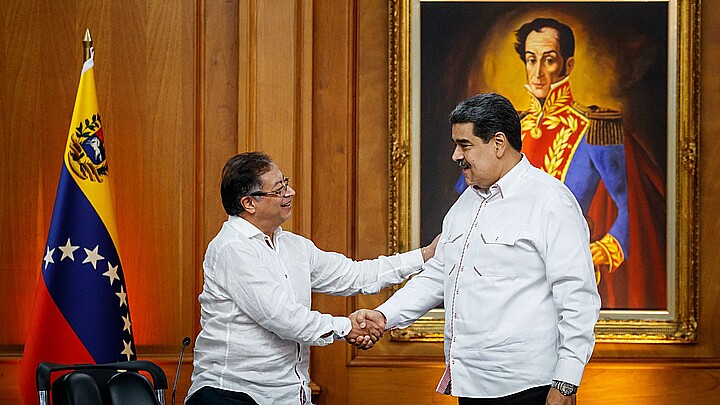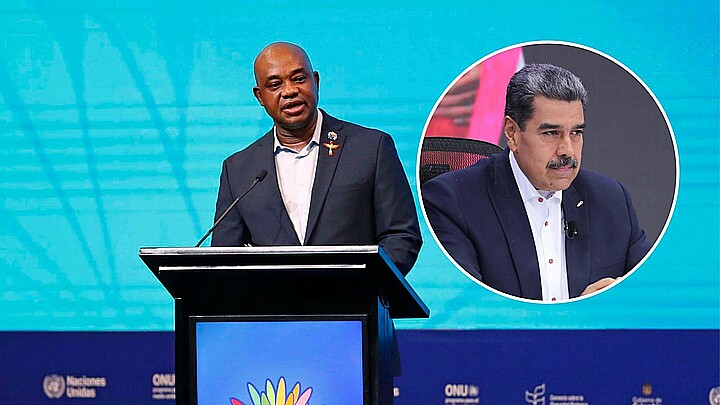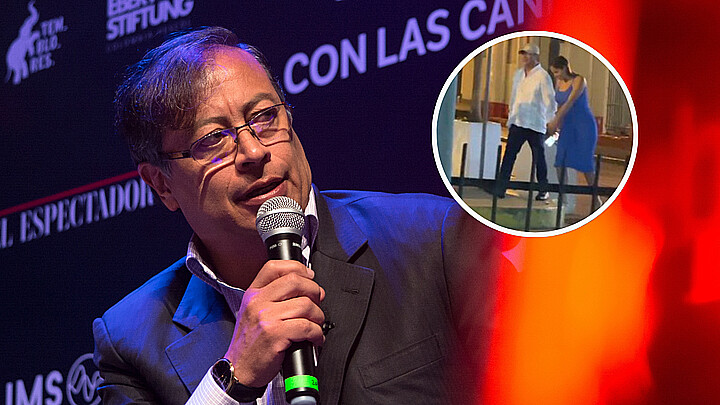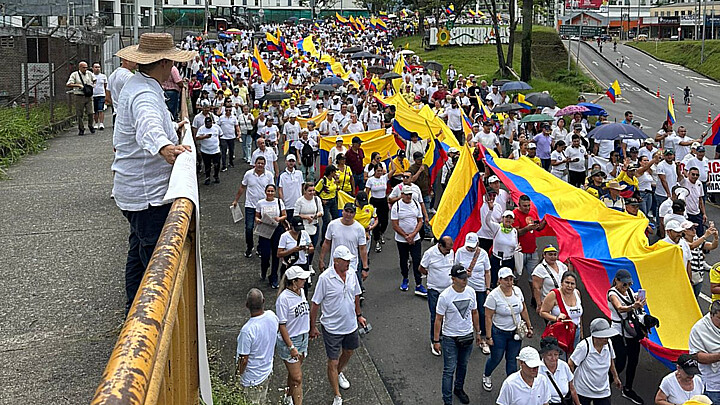Politics
Marxist philosopher who hates Capitalism and believes love is 'evil' endorses Colombia's leftist presidential frontrunner
"My name is Slavoj Žižek and I am addressing you from the other side of the world. I ask all of you to vote for Gustavo Petro, not only for what he could do for Colombia, but for the whole world"
May 28, 2022 1:19pm
Updated: May 28, 2022 1:21pm
Colombia’s leftist presidential frontrunner announced on Friday that he received an endorsement from the infamous Marxist philosopher Slavoj Žižek.
In a Spanish language video posted to Twitter, the Slovenian philosopher urged Colombians to vote for Gustavo Petro during Sunday’s first-round presidential elections.
Agradezco el apoyo del filósofo Slavoj Žižek, quien invita a votar por nuestra campaña presidencial y resalta nuestro programa de gobierno. pic.twitter.com/TUF1Jd5ExR
— Gustavo Petro (@petrogustavo) May 27, 2022
"My name is Slavoj Žižek and I am addressing you from the other side of the world. I ask all of you to vote for Gustavo Petro, not only for what he could do for Colombia, but for the whole world,” the philosopher said, adding that the leftist candidate represents “the change we all know is necessary.”
“Petro promises action. To paraphrase Gandhi, Petro is the change that we all know is necessary. He unites a platform of principles with a pragmatic spirit. We should not fear that his policies could bring chaos. In fact, the only thing we should fear is the fear propagated by those who do not want real change.”
“I implore you to recognize that a vote for Petro is the vote for all of you. Not only will Petro bring you a higher standard of living, but also a better, different quality of life,” he added.
Žižek is a Slovenian cultural theorist and philosopher who has gained infamy amongst proponents of open societies for his bold opinions, controversial theories and dangerous spin on mainstream progressive issues through a Marxist lens. Furthermore, Žižek has consistently over the years attempted to discredit, mock and disprove the theories of Capitalism, arguing instead that Capitalism is neither natural nor inevitable.
“Liberal democracy - as you know, in the old days, we were saying we want socialism with a human face. Today's left effectively offers global capitalism with a human face, more tolerance, more rights and so on. So, the question is, is this enough or not? Here I remain a Marxist: I think not,” he once wrote.
In a well publicized video monologue republished several times on YouTube, the controversial academic Žižek said, "love is evil."
When one considers that ideas have consequences, as conservative intellectual Richard M. Weaver once wrote, the implications of Žižek’s for the Colombian election becomes evident.
After all, many paradigm shifting leaders have relied heavily on boutique ideologies in order to push their political agendas forward. Putin has Dugin. Obama has Frank Marshall Davis. Petro has Žižek?
Although Colombia has been one of Latin America’s most stable democracies, often voting for moderate conservative candidates, recent polls have suggested that the 62-year-old former guerilla who has promised to “democratize” the South American nation’s economy – would beat center-right Federico Gutierrez in a runoff election.
According to data from a May 20 AS/COA poll, 53.2% of voters age 18 to 25 said they will vote for Petro on Sunday. Although his support falls among older voters, the poll found that he is set to beat any opponent in a hypothetical June 29 runoff.
Similarly, a May 3 YanHaas poll showed that the former mayor of Bogota enjoyed 40% of voter support – up 3% from the agency’s March poll. Gutierrez, the former mayor of Medellin (Colombia’s second largest city), on the other hand, received 21% of the total vote.
In a runoff, however, the poll suggests that Petro would best Gutierrez, obtaining 47% of the vote compared to his opponent’s.
Since hitting the campaign trail, Petro has activated Colombia’s struggling middle class by promising to tackle income inequality. Investors, however, have warned that his plan to redistribute pension savings and his pledge to half new energy projects could put the South American country’s economic performance at risk, Reuters reported.
More than 39 million Colombians are eligible to vote in the election. If none of the candidates win more than half of the votes, a runoff election will be held in June between the two candidates with the most votes.
By law, no public official, including mayors and governors, may participate in campaigns prior to elections.










